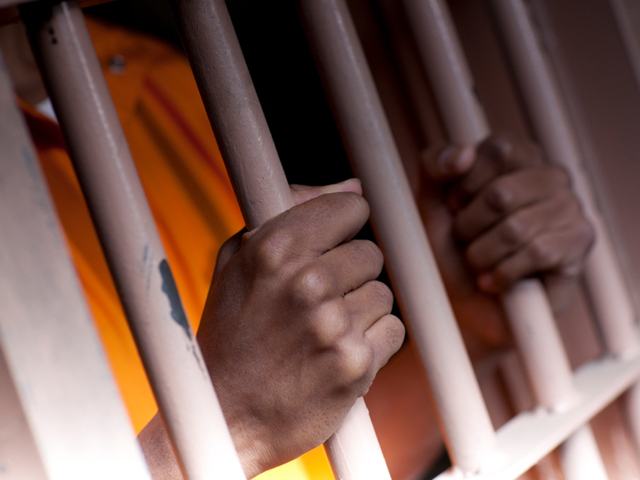For the first twelve years of my incarceration I was convinced I had done everything I could to atone for my crime by honoring my victims’ lives as I had promised their families during my sentencing hearing. I had earned a BS in Sociology and MS in Psychology in pursuit of becoming a certified alcohol and drug counselor, just as I had vowed. I was proud of what I’d accomplished, yet I was profoundly mistaken in thinking I’d done all I could to honor my promise while in this circumstance. After getting involved with a new program offered here, I quickly learned there was much more I could do.
In October of 2015 I was approached by an inmate who mentioned he had “heard what [I] was in for” and wanted to know if I’d be interested in participating in an impaired driver victim impact panel he was looking to start. I eagerly agreed, knowing this would provide me with a rare opportunity to help others through highlighting the immense pain of my victims by sharing my story.
During our first panel there were approximately 40 inmates in attendance and two volunteers from the outside who had both been personally impacted by drunken drivers: one had lost her 28-year-old son and the other had been injured by a drunk driver. I sat and listened to these two courageous women speak to a room full of convicts about the unspeakable losses they’ve endured as a result of their tragedies. I simultaneously found myself stricken with shame to think about the painful scars I’d left on the survivors of my victims. Yet I felt humbled and encouraged to hear these women also speak about their ability to forgive the people who had taken so much from them. One woman expressed, “I can wake up and hate the man who has done this to me, but who does that really hurt? So instead, I choose to forgive and live.” It was silent in that room but for the intermittent sniffles from men who futilely tried to stifle their emotions. This was the first time I had come face-to-face with people who are living with the ever-present impact and trauma of losing someone dearest to them or surviving a drunken driving collision themselves. But then there was another side.
Because I was recruited to participate in this inaugural meeting, I was also asked to share my story. I prepared intensely and meticulously for three weeks because I wanted to ensure I didn’t fumble my words and could deliver them fluidly and clearly. Thankfully, I was able to meet my mark, but the true satisfaction came immediately afterward. The two women who had shared their powerful stories thanked me for telling mine. They told me that they wished more of “us” told our stories at impact panels in the communities because people outside need to also hear our perspective, especially when we are extremely remorseful and seek to make amends by spreading awareness. To know the victims of crime would be eager to work side-by-side with those of us who have victimized them, leaving them in unfathomable pain, was nothing short of remarkable and humbling beyond words. It was in that moment that I came to understand the necessity of coming full circle in my rehabilitative efforts by honoring my victims and contributing to my community by collaborating with victims to work toward a common goal — preventing further crime and victimization.
During my twelve plus years of incarceration I have seen many programs that inmates are able to access: education, cognitive restructuring, substance abuse treatment, religious services of all kinds, etc., but it has become painfully obvious to me that all of these combined could not have brought me to fully reconcile what I’d done with where I want to go. In other words, there is no substitute for hearing, feeling, and witnessing the severe impact our actions have had on victims, their families and friends, and our communities. As grateful as I am for having had the rare opportunity to earn a formal education that will unequivocally aid me in my quest of becoming a productive, impactful member of my community, the empathy and insight gained from hearing and sharing my own story of tragedy and destruction with others has who done more for my recovery than I ever imagined. It has also, without question, allowed me to add an invaluable component to honoring my victims.
Please see my DUI Victim Impact Panel Speech here:
Martin Locket
DOC #12664175



The video is very moving.
What ?
Did you watch the embedded video?
https://youtu.be/ccA2e7-I0e4
Really powerful. Thank you for sharing this. Eloquent and powerful. You honour the two victims, as you were honoured by their forgiveness. Attitudes like this change the world.
What ?
I relate 100% to that first drink and now it made me feel and how it started to isolate me. I write about it as well on my blog. Thank you for sharing and good for you to changing and making the best of your situation to help others.
Hello Mr. Locket,
We come from very different worlds, but you and I share something in common: our lives were forever changed one New Year’s Eve.
I was well into the second semester of my undergrad when a call from my mother shook the foundations laid by a year of scholarship-paid higher education. Child services had come by our home. My little brother had been found wandering the streets in nothing but a diaper. I could tell by her slurred speech that she was abusing her medication again.
I felt hollow after hanging up. I knew I had to leave the city and see to my little siblings (at least, I felt I had to). I differed for a year. Most of what I remember from that time is cleaning while listening to the same Johnny Cash album over and over.
Going back to class was hard, and it was harder still to see that our home had fallen into disarray when I returned for Christmas vacation. She didn
t know what day it was. There was a frozen turkey in the house but no other food. I cleaned. I helped stock the fridge. On January 31st, she held me close on the train platform and asked me not to leave; I didnt need to go off to university when there was a community college near by. I told her I loved her and got on the train. I didn`t start crying until I reached my seat.The next day, I received the news that she had overdosed. She died a the age of 46, January 1st 2007.
I have few people I can share this with. It’s difficult to talk to therapists who haven’t known a lot of hurt in their lives. I don’t want that tragedy to define me, but I can’t pretend that it hasn’t left it’s mark. I let people mistreat me because I don’t have much in the way of self worth. I feel powerless, and often very alone.